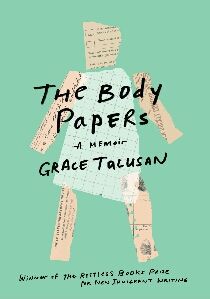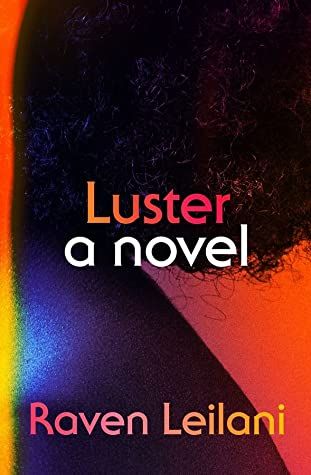There are so many ways to mark time: by astrological seasons, by books read, by discarded tea bags, by Fridays, by miles walked, by pages written, by semesters, by songs, and on and on. At every calendar year’s end, I obsessively search for the “A Year in Reading” series via The Millions. Two Decembers ago, I read about Grace Talusan’s book-filled 2019. The essay mentions so many wonderful titles, including Good Talk by Mira Jacob and I Was Their American Dream by Malaka Gharib. Plus, something more than books stuck with me. The author of The Body Papers has an online accountability group that started years ago with wanting “to counteract the imbalance of women’s writing in the pages of literary magazines and book review pages by encouraging each other to submit more often.”
Oh, how I wanted this, too. I yearned for a community to discuss the hard-to-measure, invisible-to-other-people work that writers do. If you’re a storyteller harboring publishing hopes, you know how much time, silence, can stretch between victories: 365 coffee spoons, a spin around the sun. Inspired by Talusan, I, within moonrises, gauged interest with my text chain. Of my dear fictioneers, two — my MFA wifey and poetry pal — wanted to celebrate their consistent steps, too.
In the spirit of accountability, meeting regularly is important. Once upon a time, accountability groups met in person. (What a daydream, right?) Some chat virtually. As you may know, I’m a bit hermit-y, prefer pantlessness to pants. Considering the isolating times, our spread-out locations, and different schedules, we forgo future planning by agreeing to meet in email-land on the first of every month to discuss our reading, writing, editing, and submitting goals.
On January 1, 2020, I press send on the inaugural love letter, including three reading intentions: a new release, genre fiction, and translated work. Since February 1, 2020, we reflect on the past month — psst, I did it — and set goals for the current month, like concentrating on books I was embarrassed not to have read. Now, it’s been around 15 months, and looking back at 2020 — which some summed up over the holidays with toilet paper and dumpster fire tree ornaments — we find it a blessing that we could turn to each other and old missives to gaze upon bright spots, cling to them for comfort.
Like Talusan’s accountability group, we discuss submissions. In 2020, we sent work to 189 places and received four acceptances. A common slice of writing advice is to read a lot and often. From the essay “So What Shall I Write About?” (translated by Ted Goossen), Haruki Murakami insists, “Absorb as many stories as you physically can. Introduce yourself to lots of great writing. To lots of mediocre writing too.” So, we read.
Last year, we broke personal reading records. My MFA wifey read 24 books, her “post-kid” reading-life high. I read 165 books. We set out to do big things like participating in Nicole Sealey’s The Sealey Challenge, where poem enthusiasts read a poetry book or chapbook every August day. We also set out to do small things, like finishing bookmarked titles or reading 100 pages of a new novel.
Often, after work, our exhausted eyes and our exhausted pandemic-heads and hearts read for “escapism.” Sometimes, we discover we’re reading the same book, like Jacqueline Woodson’s Red at the Bone, and text-gush about it. Often, we read organically, letting Terese Marie Mailhot’s Heart Berries lead us to Danez Smith’s Homie to Janice Lee’s The Sky Isn’t Blue. Sometimes, we assign ourselves homework.
We read books we’ve been wanting, meaning, to read, like Conflict Resolution for Holy Beings by Joy Harjo. We read book club picks, including Fiebre Tropical by Juli Delgado Lopera, The Only Good Indians by Stephen Graham Jones, and Memorial by Bryan Washington. At one point, we all crack open We Ride Upon Sticks by Quan Barry and crack up.
We fall feet over brains for Shruti Swamy’s A House Is a Body, Carmen Maria Machado’s In the Dream House, Zadie Smith’s Intimations, Raven Leilani’s Luster, Cathy Park Hong’s Minor Feelings, Jazmina Barrera’s On Lighthouses translated by Christina MacSweeney, Akwaeke Emezi’s Pet, Natalie Diaz’s Postcolonial Love Poem, Audre Lorde’s Sister Outsider, Zeyn Joukhadar’s The Thirty Names of Night, Brit Bennett’s The Vanishing Half, and Yanyi’s The Year of Blue Water.
From winter to winter, our focuses, like our reading lists, expand. We donate. We exercise. We paint toenails. We make home improvements. We rest. We take deep breaths. We eat dumplings (for research and for fun).
Because we’re human, it isn’t always sunflowers. Sometimes, we don’t write until the second, the third, or the sixth. Sometimes, we skip December. Sometimes, we miss our goals. In fact, our dispatches include a lot of this language: “Didn’t do much writing this month. That’s okay.” Occasionally, we choose to be kind to ourselves in goal-setting by not setting them, explaining, “Let poetry arrive when poetry arrives.” We even intuitively plan on finding peace with not crossing all of the things off our lists.
2020 taught me that our relationship with time and productivity can drastically change, but one thing that has remained a constant has been my accountability group. While sheltering in place, having others witness the seemingly tiny tasks — capturing an opening line, sneaking in several poems, proofing a chapter — between hand-washing face masks and sanitizing groceries is no insignificant thing. Especially when looking back to last spring, or even last week, feels a little like staring into a funhouse mirror. Because some days getting anything done feels like an accomplishment, our accountability group congratulates one another for taking showers, for taking a day, for saying no to things, for ignoring everything but our current read, too.
So, do you have an accountability group? If not, will you form one with your beloveds?



